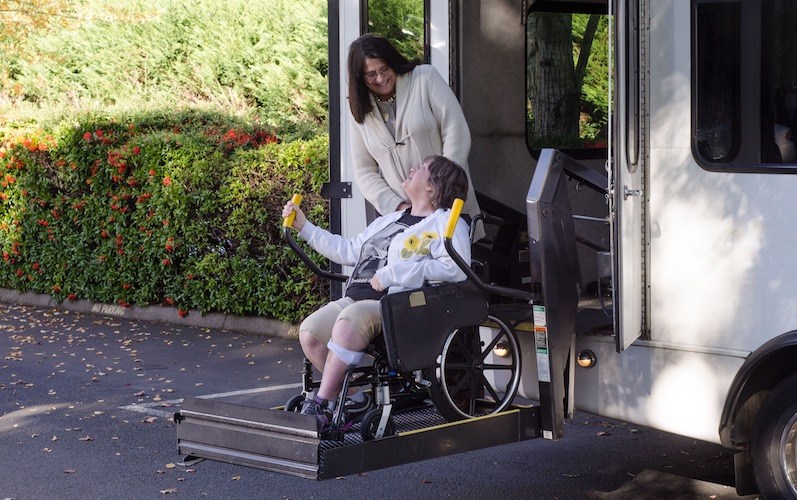Startup uses Uber to get patients to their medical appointments

Getting to the doctor will soon get easier for some struggling patients. Boston Children’s Hospital has joined forces with the ride-hailing service Uber to pilot a non-emergency medical transportation platform.
The online, HIPAA-compliant tool, called Circulation, connects with health care information systems, enabling hospitals to schedule Uber rides for patients. The pilot will serve Boston Children’s, Mercy Health System in Pennsylvania and Nemours Children’s Health System in Wilmington, Delaware.
A 2005 study estimated that 3.6 million people miss medical appointments because they don’t have access to transportation. While Medicare and Medicaid and other payers provide non-emergency transportation benefits, such as taxi vouchers, patients may be unaware of the programs or have trouble navigating reimbursement rules for the rides. Frequently, the taxi or car service arrives late or doesn’t show up at all.
And that can allow medical problems to fester until they become true emergencies. Missed dialysis visits. Skin infections that get out of control. Low-income patients, the elderly and patients with disabilities or chronic illness are especially at risk.
Reducing costs, improving the patient experience
When it comes to improving health care, transportation “is not a flashy concept that comes up a ton, but it’s actually one that represents a huge pain point and a huge cost,” Circulation co-founder John Brownstein, PhD (also Boston Children’s chief innovation officer) told Xconomy. Brownstein is also an Uber adviser and co-founder of UberHEALTH.
Circulation can match Uber vehicles to riders’ special needs (such as wheelchair assistance or travel with a caregiver), then text or phone them with the driver’s estimated pickup time and details on the vehicle. (Patients need not have the Uber app or even a smartphone.) The hospital, meanwhile, can track a patient’s ride in real time through a dashboard. Circulation handles all billing and reimbursement on the back end.
Research indicates that such programs (similar ones offer service through Lyft) reduce wait times for transportation by about 30 percent and costs by almost a third. Patient satisfaction was 80 percent.
Boston Children’s gastroenterology division will be the first to pilot the platform. “There’s already much stress and anxiety on the part of families whose young children need regular medical care,” says pediatric gastroenterologist Michael Docktor, MD. “With Circulation, we can ensure that parents can focus on their children, not the ride to the hospital.”
Once the pilot is complete, Circulation plans to roll out in six additional states. Brownstein told Medical Marketing & Media that the startup is working on a consumer version and may seek to use Circulation to improve patient discharges from the hospital.
Flu vaccine delivery, rolling consults
This isn’t Uber’s first health care project. In 2014, Brownstein got Uber to launch a pilot program in Boston, Chicago, New York, and Washington, D.C., that paired Uber drivers with registered nurses who delivered flu shots to people in their homes. More than 2,000 people got vaccinated through the program, whose costs were shared by Uber and Epidemico, a population health data company Brownstein cofounded (acquired by Booz Allen Hamilton in 2014). In 2015, Uber offered a one-day flu-shot program in 36 cities.
Uber and Brownstein are also partnering to spark health care innovation. Tomorrow, as part of Boston’s HUBweek, Brownstein will spend part of his afternoon dispensing entrepreneurship advice during 15-minute Uber rides. More in the Uber newsroom and on Twitter (#UberMENTOR).
If you are a physician with a complex-care patient to refer, call Boston Children’s priority line (1-844-BCH-PEDS).
Read more about Circulation in the Boston Globe, Xconomy, WBUR’s Bostonomix and Medical Marketing & Media.
Related Posts :
-

Study highlights the severity of acute necrotizing encephalopathy in kids with the flu
For most children, influenza (flu) usually means unpleasant symptoms like a fever, sore throat, and achy muscles. But for a ...
-

Five things to know before getting an online second opinion for your child
Whether you want to confirm your child’s diagnosis or treatment plan, another set of expert eyes can give you ...
-

Model enables study of age-specific responses to COVID mRNA vaccines in a dish
mRNA vaccines clearly saved lives during the COVID-19 pandemic, but several studies suggest that older people had a somewhat reduced ...
-

EarlyBird: Addressing dyslexia through game play
Up to 10 percent of the population has dyslexia, yet many children are diagnosed only after struggling with reading for years. ...






